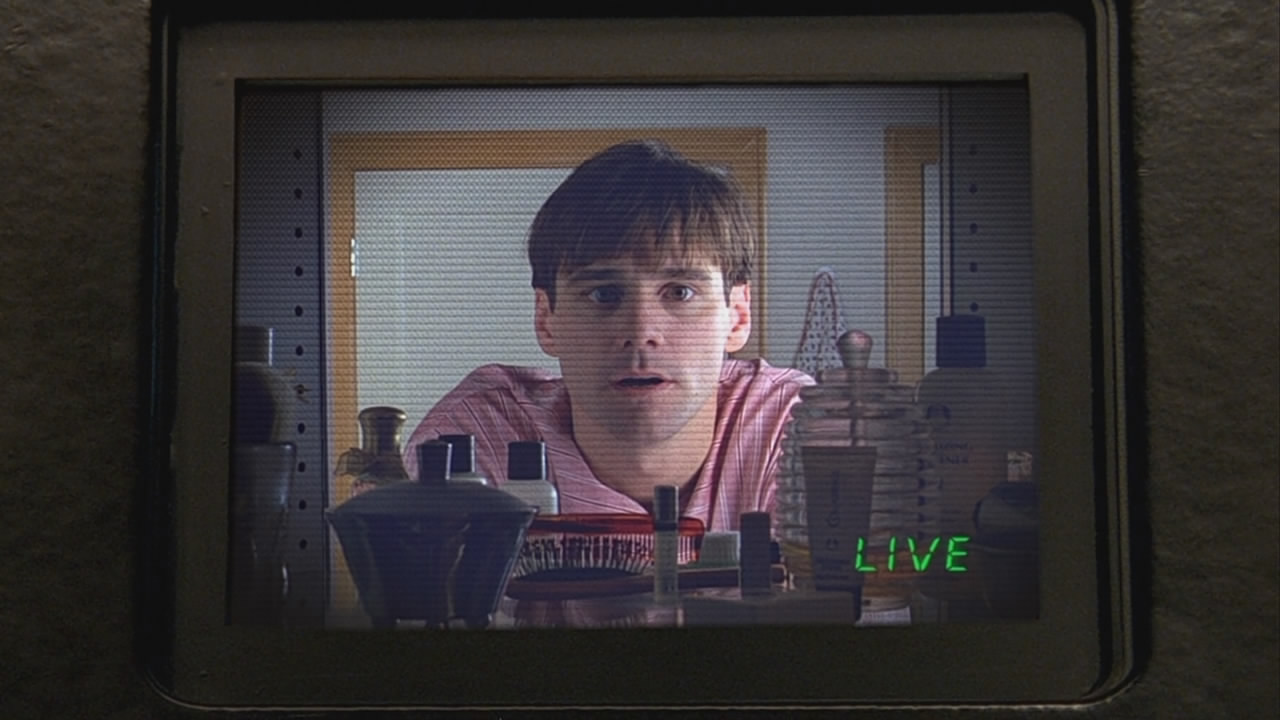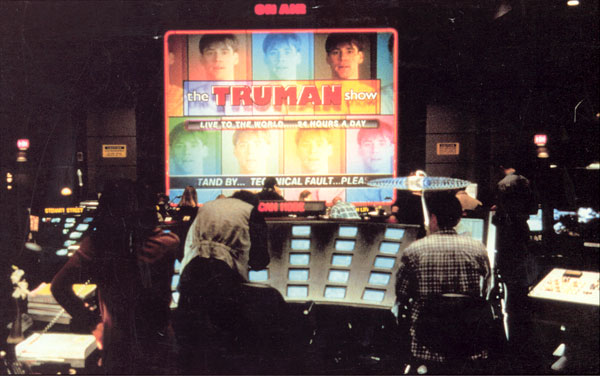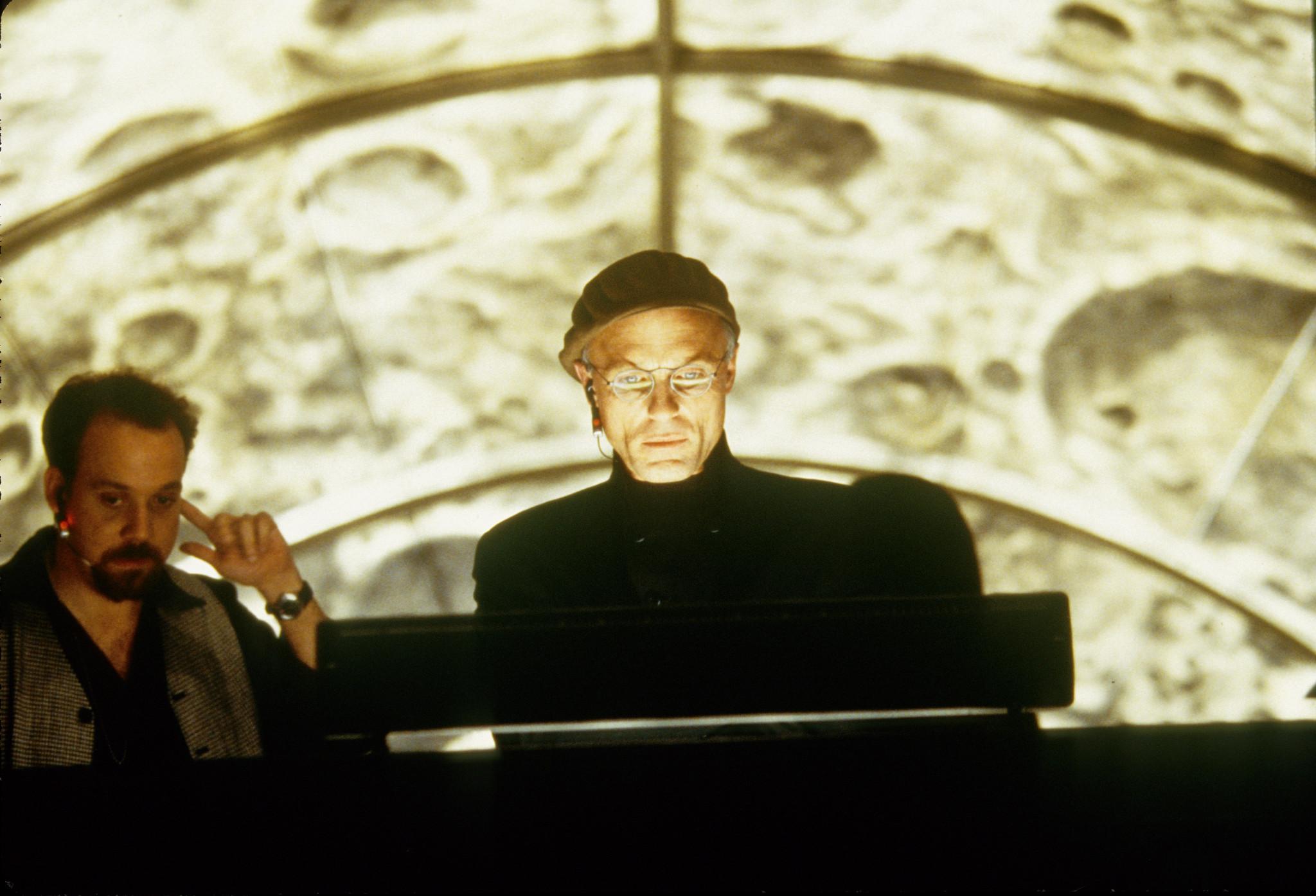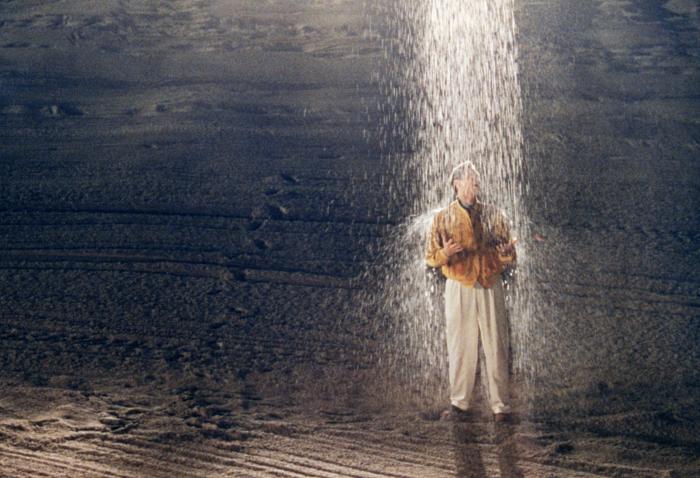
Peter Weir’s The Truman Show, based on a sharp script from Andrew Niccol, was well received in 1998 both critically and commercially. Though not spoken of as a classic in most circles, it enjoys a solid reputation and is sometimes singled out as a particularly prescient piece of work, having predicted fairly accurately the eventual direction of reality TV and the obsession with it.
It also stands–to many–as Jim Carrey’s finest dramatic performance. The character of Truman Burbank, growing up in an artificial environment, probably would have grown up to be a person with the bright and elastic mannerisms of Carrey.
Not only that, the film features sparkling production design and inventive camera work (as the various angles suggest hidden and oddly-sized cameras). The Truman Show’s biggest legacy, however, is the timelessness of its themes. Almost 20 years later, the film has only grown more pertinent to the times. Below are 8 Reasons That The Truman Show Will Always Be Relevant.
1. It examines the public’s obsession with pop culture

Through the inclusion of viewers within the film following along with Truman’s plight, Niccol and Weir both celebrate and critique the obsessive way in which TV is devoured. This voraciousness has only increased in the years since Truman hit theaters. Now we have binge-watching and hate-watching and all manner of pop culture participation, both helpful and harmful.
Though the movie declines to make any heavy-handed judgments on these viewers and mostly eyes them with amusement, it also subtly satirizes the way their world lives and dies through what Truman does and does not do.
There are, just to name a few, two security guards watching it while on the job, two older women living out their twilight years by watching Truman all day, and a man who spends an inordinate amount of time in his bathtub. All of them are sparsely drawn characters, not essential to understanding the film.
Nonetheless, their humorous and dramatic reactions to Truman give the movie-watching audience a sense of the vigor that Truman inspires. And, yet, the man in the bathtub is so often in the bathtub, sitting life out, living vicariously through Truman. The security guards are shown neglecting their duties in favor of following Truman. The old ladies are perpetually ready for bed, less concerned about making the most out of their later years than rooting for Truman.
Is it harmless? Or is something more insidious going on? Truth is, it is probably harmless, but the film plants the seed in the movie-watching audience’s mind. Almost 20 years later, this question is many times more relevant as the lines between pop culture and regular culture, as well as fiction and nonfiction, have been blurred several times over. Fiction teaches, inspires, and reprimands, but when it replaces reality, dangerous consequences lurk in the offing.
2. It gives one compelling interpretation of the relationship between God and man

The metaphor of Ed Harris’ Christof as a God-like figure is not subtle. (The man’s name is Christof, for goodness’ sake!) However, in presenting the character as both a caring, compassionate man and an angry, controlling tyrant, The Truman Show examines the dichotomous nature of a belief in a higher power.
The chastisement, the punishment, and the triumph must all stem from one being, in most belief systems. Here, the movie demonstrates Christof’s love for Truman over and over, as he describes the show to the viewing audience and, at the conclusion of the movie when his face lights up as he talks about Truman losing his first tooth.
At the same time, Christof also violently compels one of his colleagues to blast Truman with water over and over again until he almost drowns. His vindictive and controlling nature is illustrated as he abandons all pretense and benevolence to seek revenge for his surrogate son fleeing the ideal and idyllic life Christof has created for him.
Though Christof has a carefully crafted public persona, one built on the idea that he humbly watches over his steward, he harbors a mean streak, much like the God of the Old Testament.
To dismiss Christof as an ultimately inaccurate or cynical version of God is to ignore human history. He is a fairly exact representation of a Higher Power, elucidating the relationship that Being has with all people: he loves them but must chastise them and–in most religions–needs to them to follow specific commandments to demonstrate their worthiness.
When Truman leaves his manufactured world at the conclusion of the movie, Christof truly believes Truman has made the wrong choice. Outside of Christof’s watchful eye lies heartbreak, violence, and blatant hypocrisy, which he believes he has eliminated for Truman in the reality TV world.
Truman, feeling shackled and lied to (rightfully so), ultimately decides he must make his own path. Their relationship and their decisions mirror those of countless others and they try to make sense of their spiritual beliefs and their perception of God in an increasingly cynical world.
3. It ruminates of the idea of free will

As a human who was born in the completely natural way but then placed in a decidedly unnatural environment, Truman is a prototype of sorts in the eternal debate of nature vs. nurture. As the movie moves toward its finish, Christof is 100% certain that Truman will not use the water as a means of escape because he has given him so many reasons not to.
Nevertheless, in the end, Truman eschews all convention and chooses for himself, ignoring the “programming” that Christof and his team were so sure of. In the film, it serves as an inspirational message that through determination and strength, we can overcome anything. However, it also examines the idea of how our environment shapes what we need and want versus how our innate nature drives us.
For more than half the movie’s runtime, it seems to suggest that, though Truman has the illusion of free will, he has been manipulated into choosing only what Christof wants or needs him to choose. If one’s destiny (per se) is inexorable, one’s path unchangeable, does one have any say in where one ends up? Of course, the movie’s goals are more modest than challenging long-held philosophical beliefs but that doesn’t make the ruminations any less relevant.
As children, as employees, or as humans watched over by a God (as many believe), how much choice do we actually have in what we do each day and where we end up? Truman would suggest that no matter who lords over us or where our path leads to, we have the power to modify. And The Truman Show on the whole suggests that free will is much more complicated than simply choosing what one wants.
4. It challenges the perception of what a “happy ending” must include

Illustrations of the term “happy ending” can include the conclusions of cinematic stories as well as events in real life. At the end of The Truman Show, Truman simply walks off of the set he never before realized he lived on and then the credits roll. The audience does not see him seek out his birth parents, reunite with his long-lost love, nor encounter worlds and ideas that are foreign to him.
The step that he took, the one that brought him back to real life, is all that this ending needed. Some viewers found it ambiguous and wanted more, having been conditioned that all loose ends must be tied up in a truly happy and satisfying ending.
The Truman Show challenges that idea. In an interview, Andrew Niccol once said that there were too many things to show Truman doing if the movie continued. For the audience and for the script, the thrust of the story, the driving action, is whether or not Truman will discover the illusion he is living under and fight to escape it. When he steps out of that door, as Christof advises him not to, the central question of the film has been answered.
There could be some great scenes following that, no question, but they would only deepen some themes or add emotion, they would not help answer any of the movie’s main questions. It’s doubtful that anyone would argue that The Truman Show does not have a happy ending. It unequivocally does. It’s what it leaves out that annoyed some viewers.
“Where are the moments I usually see at the conclusion of a movie like this?” is one question some asked. The burden of an ending, though, is not to settle every single thing. With The Truman Show, it was to end our hero’s initial journey. The other journeys his life might offer now are up to the audience’s hearts and imagination.